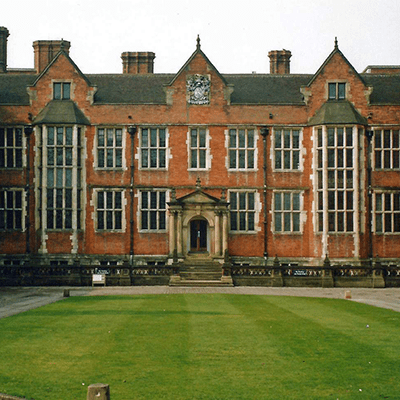The digital economy, four-day working weeks and the 'productivity puzzle'
Ed Halford catches up with James Plunkett, author of End State and a Guardian political book of the year.
Pyjama bottoms and a shirt was the work attire which many of us became familiar with during the pandemic. Jumping onto an early morning Zoom call in this attire became the norm. Working from home meant you avoided the extortionate coffee costs at the station and the forced conversations with fellow commuters on the train. Our working habits were disrupted, and our work creeped into places we usually associated with leisure time.
This time soon influenced James Plunkett’s book End State which provides a futuristic, radical and optimistic vision of what our society may soon look like. Previously an advisor to Gordon Brown, Plunkett has an experienced grasp of the processes behind policy formation and understands the realities of government. I firstly asked Plunkett whether the pandemic had highlighted deeper structural problems inherent in the economy and Britain’s political life.
Plunkett suggested it is wrong to assume that Covid-19 has only brought new problems, as instead he said “a crisis like Covid is like a bright light which illuminates the problems that were already there.” In the introduction to End State Plunkett emphasises that we haven’t yet worked out “how to govern the new economy.” Plunkett argues that we are having to learn how to interact and engage with a “digital economy” and reveals the importance of the current juncture we find ourselves at by making comparisons with the time of the industrial revolution.
Plunkett clarified that it was “less that Covid creates new problems” and more that the pandemic had “sharpened the problems which have built up.” Plunkett used the analogy of the Second World War and said that crises were powerful in reminding people “of what we are capable of collectively.” However, the Second World War had a different outcome in that “we came out of the crisis with a sense of collective possibility” and this was then “channelled into the creation of the modern welfare state.”
Plunkett accepts that the pandemic forced the government to produce radical policy inventions such as furlough but he highlights that “it hasn’t really led to a lasting pressure for change, which is what I think we need.” With more people opting to work from home permanently instead of venturing back into the office, Plunkett’s commentary on how people separate their leisure time from their work is extremely relevant.
If you hate Mondays in the office, then you will quickly warm to Plunkett’s ideas.
Plunkett is a proponent of four-day working weeks and his book provides a convincing argument for why the “productivity puzzle” can be solved by giving employees more time off. With working hours falling, but the intensity of work increasing, Plunkett said that Covid had brought “both negative and positive” developments. “It has brought to a head that we urgently need new ways of working,” he asserted. With the office encroaching into our bedrooms, Plunkett said that the pandemic “forced people into an incredibly intense Zoom fatigue” and eventually people came to realise “we can’t sustain this.”
When first conceived, the two-day weekend was “seen to be this terrifying and radical idea.” Debates today about four-day working weeks are part of “that long history of debates about well-being at work.” When Plunkett first touches upon his time working in No. 10 in the introduction to End State he undersells his importance by describing himself as “a bag carrier’s bag carrier”.
Plunkett worked in No 10 when the digital economy was rising, and he spoke about how Gordon Brown was one of the first Prime Ministers to receive emails. Plunkett said that people very easily become obsessed with the theatrics of politics, as it is “all about who is rising and falling, and people forget that there is a government to be run.” Throughout the book, it is easy to see that Plunkett enjoys thinking about the “ways in which the state is run and how that works.” An enlightening story Plunkett told was about his experience of sitting down with Gordon Brown and Tim Berners Lee, the inventor of the World Wide Web. Plunkett recalled that it was interesting to hear them both “talk a different language.”
Brown spoke the “language of twentieth century government” and Berners-Lee the “language of the internet.”
In End State , Plunkett expands upon the significance of this experience on the development of his own ideas, and told Nouse that “ever since I’ve just been obsessed and concerned with this disconnect in the logic between the state and the economy.” He added: “I think it sits behind a lot of the big problems which we see in society today.”
The most revealing part of the interview was when Plunkett told me that we are often guilty of letting “the theatre and the politics take over”. “We actually forget that there is an incredibly difficult and demanding job which requires really savvy prioritisation, unbelievable time management, clarity of thought, decisiveness, [and] emotional intelligence”.
Plunkett argues that “all these kinds of things” are “massively underplayed in public debate.” Reading End State exposes you to ideas which have arisen from Plunkett’s first-hand experience of negotiating the “operational realities of government.” When politicians promote new policies, it is not often that you hear them speak about “happiness and well-being.” The relationship between happiness and how we lead our lives is a key theme in End State as he told me that “we have become too narrowly economic in the way we think about public policy problems.” He said that “we have lost something of humanity, and it is partly about this debate about happiness.”
End State discusses the gig economy at length and how we can go about making services such as ‘Uber’ more humane. Plunkett suggests more attention in public debates should be spent discussing the “quality of our relationships with each other as human beings.” An idea at the centre of End State is what Plunkett refers to as the “productivity puzzle”, where we need to find an answer to declining productivity. I asked Plunkett whether a four-day working week was a realistic possibility to which he responded confidently: “I think the four-day week is happening.”
Plunkett expressed his belief that there is “no stopping” the emergence of a four-day working week but he did warn that “people will fight against it, there will be inertia, and it will be relatively slow.” Plunkett skilfully deploys data to substantiate his arguments and he reminded me that “when you look at the long term trends in working hours they point downwards, they point towards a four-day week, at some point in the next two decades.”
A striking prediction in End State is the economic historian Richard Fogel’s forecast that by 2040 “the average person in a developed economy would spend 321,900 hours awake in their lives, an increase of 42 per cent, while working hours would fall to 75,900, a decrease of 52 per cent.” Plunkett told Nouse that “the cultural shift is happening quicker than people thought” and he highlighted that the “emerging evidence is pretty clear that it can be net positive in terms of productivity, even after the reduced hours.”
For Plunkett, the four-day working week is the “most fascinating example” of “watching an idea going from inconceivable to common sense.” Today, “we are in the middle of that journey.” Plunkett suggests that graduates should not be downbeat about what the future may have in store for them. Plunkett’s message for students was “if you are coming through university now, you will be part of the generation which makes these ideas a reality and that is really exciting.”
Plunkett envisaged “this generation” being “part of something which is radically new and different.” Plunkett said that a major trend to look out for is “the way the shift to digital is underlining the importance of big cities.” He also pointed to the “glimmer of light in building up centres of expertise in other places”, naming York and Leeds as places where there has been an increase in “new innovative jobs and people working remotely.”
Rising housing prices is a major worry at the forefront of young people’s minds, and Plunkett told Nouse that this is “one area where I’m quite pro-deregulation.” He spoke of the need to “find ways to relax planning laws to allow for more house building in high productivity areas” and said that the challenge was “breaking the hold of the nimbies.”
However, in Plunkett-like fashion, he ended the interview on a positive note, saying he was “very optimistic about the political future” and that the new ideas coming through will provide students with a “once in a century opportunity.”






